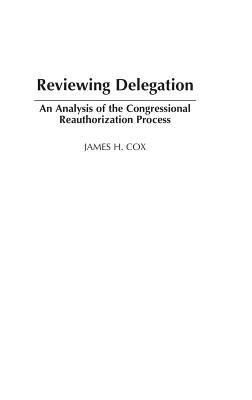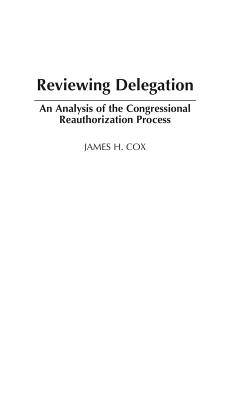
- Afhalen na 1 uur in een winkel met voorraad
- Gratis thuislevering in België vanaf € 30
- Ruim aanbod met 7 miljoen producten
- Afhalen na 1 uur in een winkel met voorraad
- Gratis thuislevering in België vanaf € 30
- Ruim aanbod met 7 miljoen producten
Zoeken
Reviewing Delegation
An Analysis of the Congressional Reauthorization Process
James Cox
Hardcover | Engels
€ 135,95
+ 271 punten
Omschrijving
Members of Congress often delegate power to bureaucratic experts, but they fear losing permanent control of the policy. One way Congress has dealt with this problem is to require reauthorization of the program or policy. Cox argues that Congress uses this power selectively, and is more likely to require reauthorization when policy is complex or they do not trust the executive branch. By contrast, reauthorization is less likely to be required when there are large disagreements about policy within Congress. In the process, Cox shows that committees are important independent actors in the legislative process, and that committees with homogenous policy preferences may have an advantage in getting their bills through Congress.
Alleen bij Standaard Boekhandel
+ 271 punten op je klantenkaart van Standaard Boekhandel
Beoordelingen
We publiceren alleen reviews die voldoen aan de voorwaarden voor reviews. Bekijk onze voorwaarden voor reviews.









